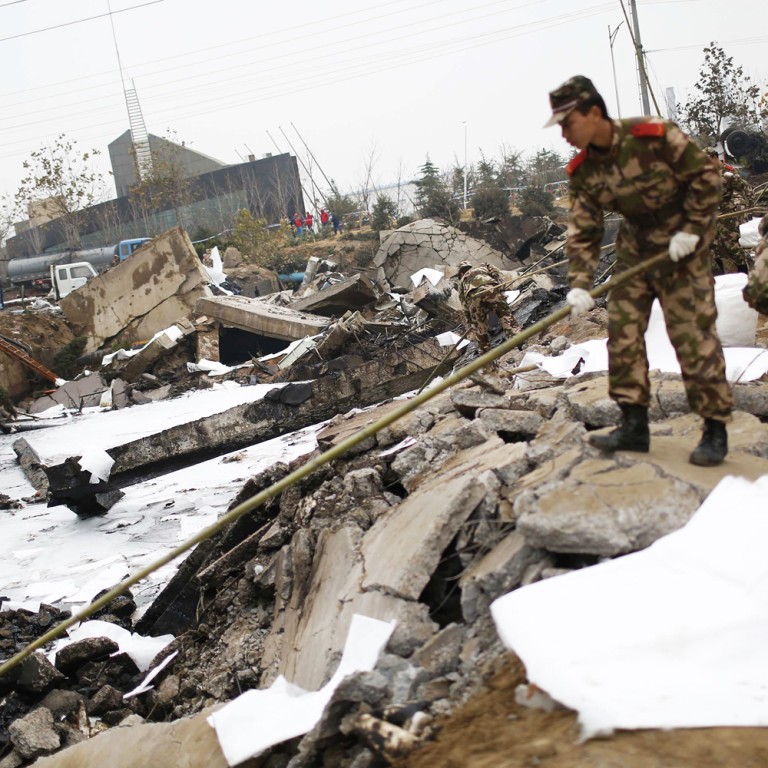
Qingdao oil pipeline blast toll rises to 52 as Xi Jinping delivers safety appeal
Eleven people remained missing as rain, debris and the possibility of explosive vapours hindered the rescuers' search for survivors around the Sinopec pipeline that exploded on Friday morning, lifting roads and levelling buildings. More than 130 people are in hospital.
The death toll from the oil pipeline explosion in Qingdao rose to 52 yesterday as President Xi Jinping visited the eastern port city to urge greater attention to safety at industrial sites.
Eleven people remained missing as rain, debris and the possibility of explosive vapours hindered the rescuers' search for survivors around the Sinopec pipeline that exploded on Friday morning, lifting roads and levelling buildings. More than 130 people are in hospital.
Adding to concerns was the expected arrival today of a cold front that could push overnight low temperatures below freezing for much of the week in the city of 8.7 million. The blast damaged many heating pipes and repairs could take weeks, the reported.
The damage to underground infrastructure left tens of thousands of residents without water and electricity. Many were relying on fire trucks for water.
During his visit, Xi met the families of people killed in the blast and urged local authorities to not neglect anyone affected by one of the country's worst industrial accidents this year.
"This is not likely to end in a day or two," the president said.
Xi called for a swift investigation and severe punishment for anyone found responsible. State-owned enterprises should take the lead on ensuring work safety across the nation and would not be given special treatment after an accident, he said.
Meanwhile, Qingdao authorities were worried that rescue efforts could ignite traces of gas such as methane, that may still be trapped in the city's sewage system.
Guo Jishan , the city's deputy general secretary, told the China News Service that Sinopec, which was formally known as China Petroleum, was responsible for ensuring the safety of its pipe network.
Sinopec said its network of 120 checkpoints had discovered some traces of combustible gas within the sewage system, but the company did not believe the concentrations were large enough to pose an explosion risk.
The blast occurred at about 10.30am on Friday as repair crews were trying to mend a leak that spewed oil into Jiaozhou Bay. The surrounding Shandong province is home to one of the largest crude-oil import terminals in the country and controls one-seventh of the nation's oil and gas pipelines.
"The company's production and operations are currently stable and the supply of oil products in the market remains stable," Sinopec said yesterday.
Video: Qingdao pipeline leak explosion

